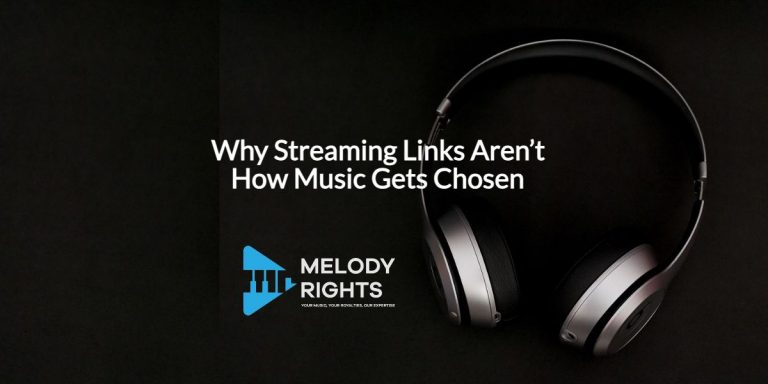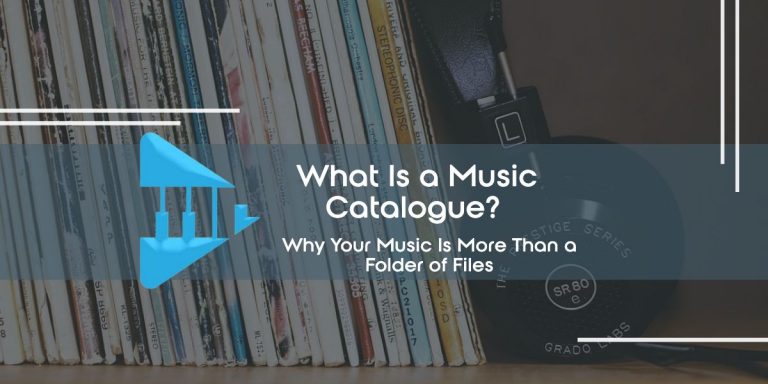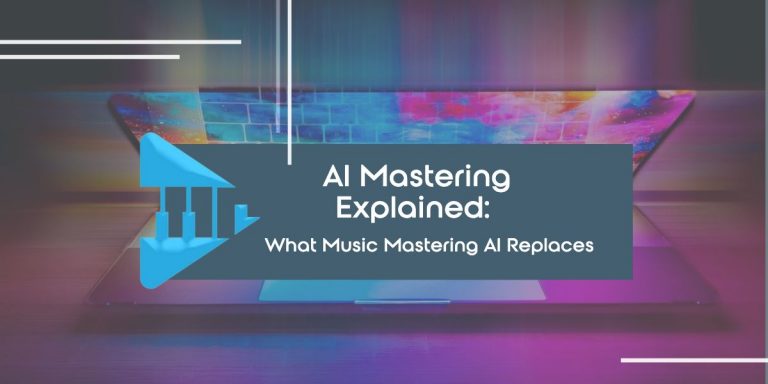Table of Contents
ToggleTL;DR (Key Summary): How Do Musicians Make Money?
Most musicians who make a living stack multiple income streams, not just one. Here’s the quick breakdown:
- Spotify and streaming royalties – small payouts per play, but regular releases can build up over time
- Performance and mechanical royalties – paid by PROs and MCPS every time your music is played, downloaded, or reproduced
- Neighbouring rights – royalties for when your recordings are used on radio, TV, or in public spaces
- Sync licensing, stock music, and gaming – one placement in a film, ad, or game can pay more than months of streaming
- Live shows, merch, and direct fan support – gigs, vinyl, Patreon, and teaching can make up the biggest share for many indie artists
Most artists are already earning from some of these. The key is registering properly and tracking every stream so you don’t leave money behind.

The Truth Independent Artists Need to Hear
You open your distributor account and there’s another royalty statement. Ten dollars. Maybe twenty. Months of streams, and that’s all. It feels like nothing for the work you’ve put in.
No one tells you this part. That $10 isn’t the whole story. Your music is probably earning in other ways, like plays in venues, radio spins, or even live gigs, but unless you register for the right royalties, the money never reaches you.
Every independent artist asks the same question eventually: how do musicians actually make money? Too many keep chasing streams while cash sits unclaimed in places they’ve never even looked.
Why Many Musicians Miss Out on Money
It’s not talent that keeps independent artists from getting paid. It’s missing registrations and messy metadata. Without registering every right with the right bodies, your royalties often sit unclaimed or in holding pools for years. In some cases, they are redistributed to the wrong people.
What’s Broken
Many musicians think uploading to Spotify or registering with a PRO is enough. It isn’t. In the UK, royalties are divided across three collecting systems:
- PRS and MCPS – PRS handles performance royalties from streams, gigs, and radio. MCPS deals with mechanical royalties from downloads and reproductions. You need separate applications.
(PRS for Music) - PPL – pays neighbouring rights when your recorded music is broadcast or played in public spaces.
(PPL)
Thousands of gigs go unregistered every year. PRS paid £1.02 billion in 2024, but more than 100,000 UK live events couldn’t be matched to songwriters because setlists weren’t submitted. Those royalties ended up in the “black box.” In 2019, at least £2.7 million was left unassigned. After three years, it was redistributed, often to major publishers instead of grassroots artists.
PPL distributed £301 million in 2024, but only to rightsholders with clean metadata. If your ISRC codes, songwriter splits, or performer credits are wrong or missing, you won’t get paid.
Why It Happens
- Small venue setlists are rarely submitted
- ISRCs, ISWCs, and songwriting splits are often incorrect or missing
- Artists don’t register with PRS, MCPS, and PPL separately
Real‑World Echo
One UK venue manager told The Guardian that PRS collects songwriter royalties in most shows. When setlists aren’t submitted, the money goes into the black box and is eventually redistributed. Larger publishers tend to benefit more than the independent artists who earned it.
“Most other guides tell you how to earn. This one shows you how to collect what you’ve already earned.”
How Do Musicians Make Money? The Main Revenue Streams
Making a living from music isn’t about one magic income source. The artists who make it work stack different streams and register for every one they can.
Streaming and Spotify Royalties
You know the drill. Thousands of plays, barely enough for a takeaway. Spotify pays around $0.003 to $0.005 per stream, which works out to roughly $300 to $500 for 100,000 plays. Streaming won’t pay your bills on its own, but regular releases keep fans engaged and can lead them to gigs, merch, or other income.
Performance and Mechanical Royalties
If you write songs, this is where a lot of your missing money is hiding. PRS for Music collects performance royalties when your songs are streamed, played live, or on radio. MCPS handles mechanical royalties for reproductions and downloads. Two separate registrations. Around 20 to 40 percent of mechanical royalties worldwide go unclaimed because artists never register. Even pub gigs count. Submit your setlists every time.
Want a deeper breakdown? Read our full guide on Mechanical vs Performance Royalties.
Neighbouring Rights
Your name is on the recording, you should be paid. Simple as that. This is money for the use of your recordings, not your songwriting. Radio plays, TV, and public venues all count. PPL paid out $301 million in 2024, but only to artists with clean metadata. Wrong ISRC codes or missing performer credits mean no payout. Session musicians and producers can earn here too.
If you are unsure about registering, check out How Much Does a PPL Licence Cost in the UK.
Sync Licensing, Stock Music, and Gaming
One sync placement can outperform 100,000 Spotify streams. A single use in film, TV, or ads can pay anywhere from $100 to thousands, depending on the project (Grammy: Sync Licensing Explainer). Stock platforms like Pond5 or AudioJungle pay smaller fees but can earn passively for years. Gaming and VR are growing fast, and indie developers are often looking for affordable, original tracks.
Want to pitch for placements? Submit your music for film and TV with the right prep and metadata.
Live Shows, Merch, and Direct Fan Support
Touring can drain your wallet, but merch and vinyl often turn a show into profit. Many indie artists now build steady income through platforms like Patreon or Bandcamp. Bandcamp paid artists over $193 million in the past year, proving direct-to-fan income is still one of the strongest streams for independents. Exclusive content, early music access, or behind-the-scenes videos give fans a reason to support you every month.
Session work and teaching are also reliable ways to fill the gaps between gigs and placements. A couple of hours in a studio or running lessons can keep money coming in while you build your catalogue.
You can also boost fan income with digital sales. Here’s how to sell your music online and make money.
HOW MUSICIANS MAKE MONEY: QUICK BREAKDOWN
| Income Stream | What It Means |
| Streaming | Small payouts per play, builds with consistent releases |
| Performance & Mechanical | PRS & MCPS pay for plays, downloads, and reproductions |
| Neighbouring Rights | PPL pays for recordings used on radio, TV, or in venues |
| Sync & Stock | One placement can pay more than 100k Spotify streams |
| Live, Merch & Fans | Gigs, vinyl, Patreon, and teaching often earn the most |

Step-by-Step Fix: How to Make Money from Music the Right Way
Even old tracks can earn if they’re registered properly. I’ve seen artists recover years of royalties just by cleaning up their catalogues.
Not sure where to start? Here’s how to register your music properly.
1. Register with PRS, MCPS, and PPL
Sign up for all three now, or you’re leaving free money on the table. PRS collects performance royalties, MCPS collects mechanical royalties, and PPL handles neighbouring rights. They don’t talk to each other, so missing one means missing that income completely.
2. Submit Your Setlists
You’ve probably been playing shows for years without realising those setlists were worth money. Two minutes online after a gig can mean real payouts later. Log into your PRS account and submit them every time.
3. Clean Up Your Metadata
Wrong ISRC codes, missing song splits, or incomplete performer credits stop payments before they even start. Take the time to double-check your details across your distributor, PRS, MCPS, and PPL accounts.
4. Audit Your Back Catalogue
Even old tracks can earn if they’re registered properly. I’ve seen artists recover years of royalties just by cleaning up their catalogues.
One independent guitarist shared on Reddit that they registered five old tracks and received £200 in back royalties within three months. They thought that money was gone for good. It was just waiting to be claimed.
Not sure where to start? Here’s how to register your music properly.
5. Pitch Beyond Streaming
Look beyond Spotify. A single sync placement can pay more than months of streaming. Stock libraries and indie game developers are always looking for affordable, original tracks.
6. Build Direct Fan Support
A loyal fanbase can be a steady income. Platforms like Patreon or Bandcamp work best when you give fans a reason to stick around, like early music access or behind-the-scenes content.
7. Think Global
If you have listeners overseas, use a publishing admin service like Songtrust to collect international royalties. Local registrations only cover part of the picture.
8. Track Everything
The more music you release, the easier it is to lose track of what’s registered. Whether you keep spreadsheets or use a service, staying organised means you don’t leave money behind.

How to Make Money from Music Without Losing Track of It
You can do all of this yourself, and you should know how it works. But the truth is, most artists don’t keep up with it. Spreadsheets pile up, setlists get forgotten, and royalties slip away.
Melody Rights handles the admin you don’t have time for. It registers your tracks with PRS, MCPS, and PPL, keeps your metadata clean, and tracks royalties across every income stream. If you want to pitch for sync or stock licensing, it prepares your music so it is ready for placements and reports back when earnings come through.
You stay in control. Nothing is locked in and you keep your rights. Think of it as a co-pilot. You focus on creating, and it makes sure every dollar you earned actually reaches you.
Your Next Move: Start Collecting What’s Yours
Your music is already earning. The question is whether it is reaching you.
Start simple. Check that every song is registered with PRS, MCPS, and PPL. Submit your setlists after every gig. Clean up your metadata. Even these basics can unlock income you didn’t know you were owed.
If you want help tracking it all, or you are ready to push for sync and stock placements, Melody Rights can handle the admin while you stay focused on making music. You keep the rights. You stay in control.
You wrote the songs. You built the sound. Now make sure every dollar it earns comes back to you.
“Every missed registration is money you already earned. Stop leaving it behind.”
FAQ: How Do Musicians Make Money?
How do musicians make money from Spotify specifically?
Spotify mainly pays through streaming royalties, which average around $0.003 to $0.005 per stream. If you wrote the song, you also earn mechanical royalties through MCPS or your publishing administrator. If your recording is played on radio or in public spaces, neighbouring rights payments apply too. Without registering for all three, you only get part of what you earned.
What’s the easiest way to start collecting missing royalties?
Register with PRS, MCPS, and PPL. Submit every gig setlist, even small shows. Clean up your metadata and check older tracks for missing registrations. Many artists find back payments once their catalogue is properly registered.
How do you register your music properly?
Sign up with a Performance Rights Organisation like PRS for Music for performance royalties. Register separately with MCPS for mechanical royalties and with PPL for neighbouring rights. If you want to save time, Melody Rights handles all three in one place while keeping you in control. Here’s a full guide on how to register your music properly.
What’s the most profitable income stream for independent artists?
Sync licensing and direct-to-fan sales often pay the most. A single sync placement can pay more than 100,000 Spotify streams. Bandcamp alone paid artists over $193 million in the past year, showing how strong direct fan support can be. If you’re looking to pitch for placements, read our guide on how to submit your music for film and TV.
How to register a song in the UK?
In the UK, register with PRS for Music for performance royalties, MCPS for mechanical royalties, and PPL for neighbouring rights. If that feels overwhelming, Melody Rights can register and track all three for you.



